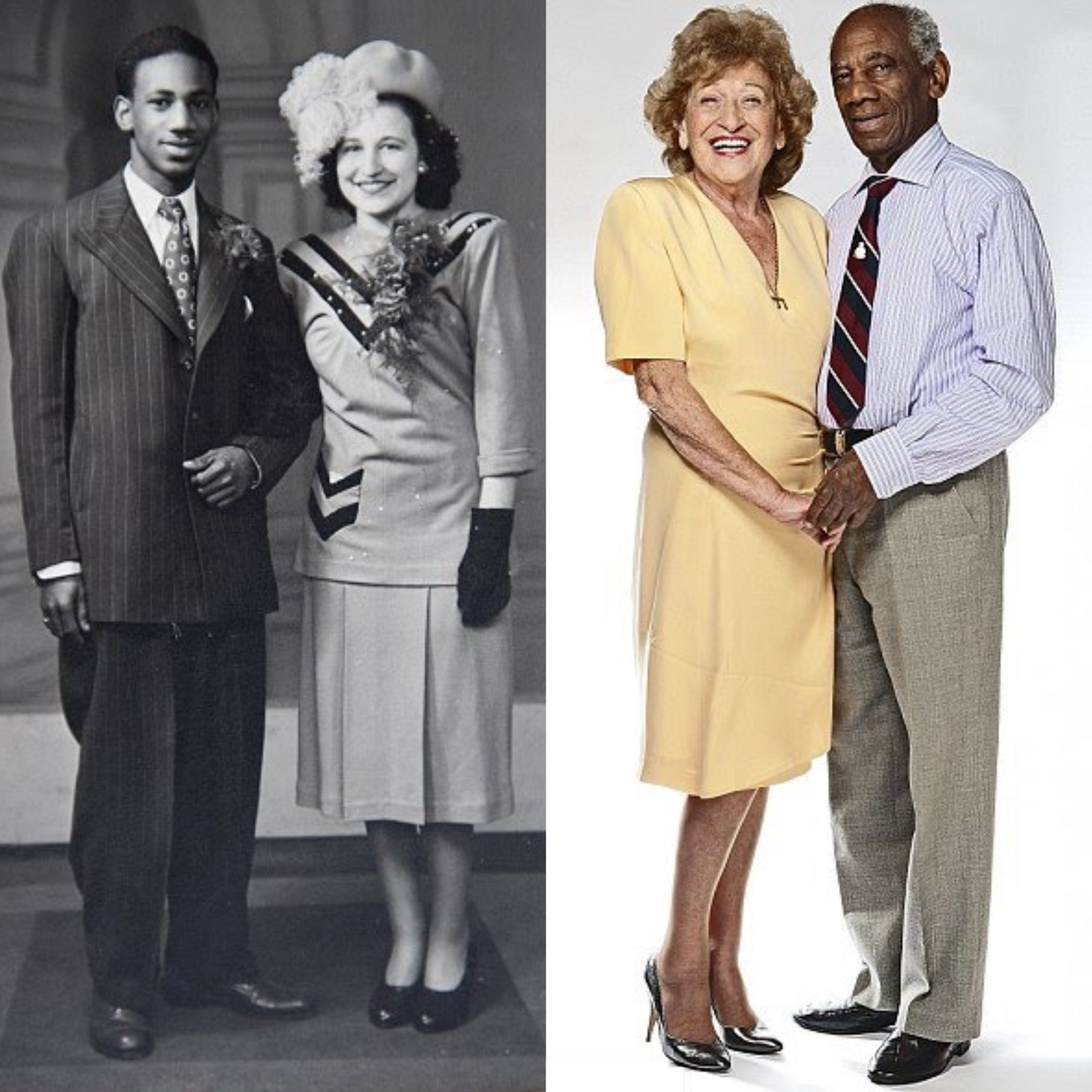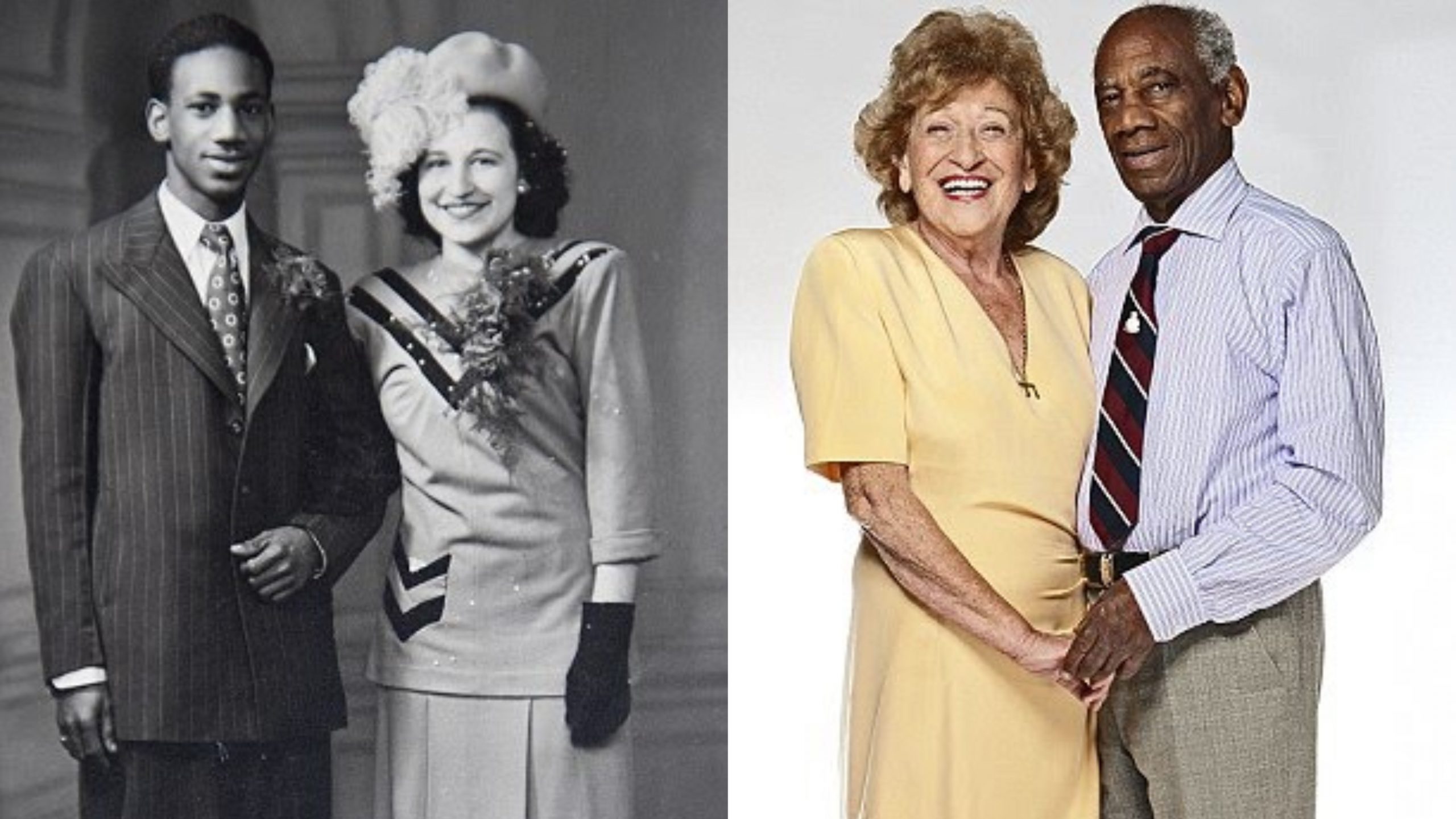Deeply moving, and exposing tensions that still blight Britain today, mixed-race couples from four generations tell their stories
‘MY FATHER THREW ME OUT OF THE HOUSE’: 1940s MARY AND JAKE JACOBS
Mary, 81, is married to Jake, 86, and lives in Solihull in the West Midlands. They have no children. Mary is a former deputy head teacher, and Jake worked for the post office before retiring. Mary is white and Jake is black, originally from Trinidad.
MARY SAYS: When I told my father I was going to marry Jake he said, ‘If you marry that man you will never set foot in this house again.’
He was horrified that I could contemplate marrying a black man, and I soon learned that most people felt the same way. The first years of our marriage living in Birmingham were hell — I cried every day, and barely ate. No one would speak to us, we couldn’t find anywhere to live because no one would rent to a black man, and we had no money.

Love against the odds: Mary’s father threw her out when she decided to marry Jake, they have been happily married for 63 years
People would point at us in the street. Then I gave birth to a stillborn son at eight months. It wasn’t related to the stress I was under but it broke my heart, and we never had any more children.
Now it’s very hard to comprehend the prejudice we encountered, but you have to remember that there were hardly any black people in Britain in the Forties. I met Jake when he came over during the war from Trinidad, as part of the American forces stationed at the Burtonwood base near my home in Lancashire.
We were at the same technical college. I was having typing and shorthand lessons and he’d been sent there for training by the Air Force. He was with a group of black friends and they called my friend and me over to talk. We didn’t even know they spoke English, but Jake and I got chatting. He quoted Shakespeare to me, which I loved.
A few weeks later we went for a picnic, but were spotted by a lady cycling past — two English girls with a group of black men was very shocking — and she reported me to my father, who banned me from seeing him again.
Jake returned to Trinidad, but we carried on writing to each other, and a few years later he returned to the UK to get better paid work.
‘No family came to our register office wedding in 1948… I do not regret marrying him for an instant, despite all the pain we have suffered’
He asked me to marry him, quite out of the blue, when I was only 19. My father threw me out, and I left with only one small suitcase to my name. No family came to our register office wedding in 1948.
But gradually life became easier. I got teaching jobs, ending up as a deputy head teacher. First Jake worked in a factory, then for the Post Office.
Slowly we made friends together, but it was so hard. I used to say to new friends: ‘Look, I have to tell you this before I invite you to my home — my husband is black.’
My father died when I was 30 and although we were reconciled by then, he never did approve of Jake.
Today we have been married for 63 years, and are still very much in love. I do not regret marrying him for an instant, despite all the pain we have suffered.
JAKE SAYS: I feel so fortunate to have met and married Mary, but it saddens me that we could not be accepted by society. Nowadays I say to young black people: ‘You have no idea what it used to be like.’
When I arrived in the UK I was subjected to abuse every day. Once I was on a bus and a man rubbed his hands on my neck and said: ‘I wanted to see if the dirt would come off.’
And back then you couldn’t work in an office — because a black man in an office with all the white girls wasn’t thought to be safe.
 The African History Truly African
The African History Truly African

